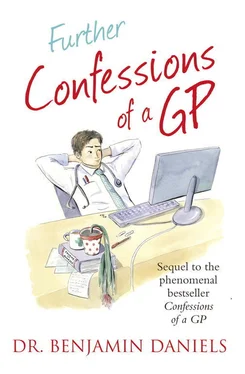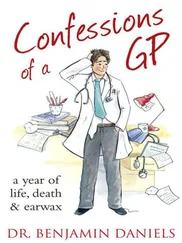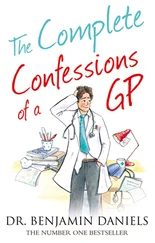For most of us, the idea of placing any sort of foreign object up our anuses is objectionable, but it is in fact a surprisingly common A&E presentation. So much so these days that it may barely raise a snigger from your seasoned emergency medics. However, there is no getting away from the fact that everyday household items stubbornly wedged in a rectum make for fabulous X-rays. There was a time when copies of these precious X-ray films were kept hidden away in the secret drawer of the head radiologist, but with the advent of the internet, we are all now just a few clicks away from being able to enjoy their irresistible attraction. My personal favourites are:
1. A key (I’m always losing mine, but hopefully not there)
2. A torch
3. A mobile phone (apparently there were several missed calls before it was removed)
4. A jar of peanut butter
5. A handgun
6. A light bulb (like a eureka moment, but in reverse)
7. A pint glass
8. Cement (it went in as liquid, but didn’t stay that way for long)
9. A perfume bottle
10. A vibrator and a pair or salad tongs (when the vibrator got stuck, rather than bother the busy A&E staff the patient decided to remove the dildo himself using a pair of salad tongs… until these got stuck too!)
Before finally leaving the essential medical subject of funny bum stories, it would be a travesty not to mention the marvellous story of the two gents who ended up in the severe burns unit of a Salt Lake City hospital.
As part of their foreplay, Eric and Andrew frequently enlisted the aid of their pet gerbil Raggot. Eric inserted a cardboard tube into Andrew’s anus and then slipped Raggot in. Normally Raggot would make his own exit, but on one occasion he refused to leave the relative comfort of Andrew’s back passage. While peering into the tube, Eric decided to strike a match, hoping that the light might attract Raggot and lead to his departure. Unfortunately the match ignited a pocket of intestinal gas and a flame shot out of the tube setting fire to Eric’s hair and severely burning his face. Raggot the gerbil was also set alight and with his whiskers and fur ablaze went on to ignite a larger pocket of gas further up the intestinal tract. The resulting explosion propelled poor Raggot out of Andrew’s anus like a cannonball. As well as second-degree burns to his face, Eric suffered a broken nose from the impact of being hit directly in the face by a rocket-propelled gerbil. Andrew suffered first- and second-degree burns to his anus and lower intestinal tract. The extent of Raggot’s injuries were not documented.
I hadn’t known Stan before his dementia set in, but by all accounts he was a placid soul. His wife Eileen described him as a devoted husband and father who wouldn’t hurt a fly. The Stan before me now was very different. Most of his time was spent passively in his chair mumbling incoherently to himself. At other times he became agitated and angry and struck out. He rarely recognised his nearest and dearest, and the previous week in his fear, frustration and confusion, he’d hit his wife Eileen with his walking stick. Eileen was devastated. She kept telling me that the real Stan would never hurt her and would be mortified if he could comprehend the consequences of his actions. Eileen’s love and commitment towards her husband never ceased to amaze me – it took a lot for her to ask me for help. This particular morning she was in floods of tears as she requested something to sedate him. Her biggest fear was that unless his aggression was controlled she would end up having to put him in a nursing home, which, in her words, ‘would break both of our hearts’.
I read recently that one in four patients with dementia are being prescribed antipsychotics in order to sedate them and control difficult behaviour. Some have interpreted this as carer laziness, believing that carers don’t want the inconvenience of actually looking after people with dementia. Eileen is often distraught and exhausted but never lazy. She is a devoted wife who wants to try to care for her loving husband who has been transformed beyond all recognition by the dementia caused by his Alzheimer’s disease.
Prescribing an antipsychotic is not something I take lightly and it was not my first course of action. We had tried normal antidepressants and also non-pharmacological techniques such as keeping good lighting and getting more help in. Antipsychotics really are a final resort. They are strong drugs with potential side effects and I spent some time talking through the possible pitfalls with Eileen. We decided to start with a low dose of quetiapine. This antipsychotic is not licensed for dementia care, and may well increase the risk of him having a stroke, but with Stan, I believed it to be the right decision.
Dignity is a word that is now regularly associated with regard to caring appropriately for the elderly and some relatives have complained about antipsychotics robbing their elderly relatives of their dignity through over-sedation. Decisions on whether to prescribe the drugs or not are a delicate balancing act and each case has to be looked at individually. Antipsychotics are not used to treat people whose dementia is at an early stage. They won’t be thrown down the throats of people who have misplaced their door key or forgotten a dental appointment. They are prescribed for agitated, disturbed patients during the last stages of this awful disease.
As always, when I’m making these difficult decisions, I resort to the simple question of ‘What would I want if it was me?’ If I was suffering with advanced dementia and striking out at my family, would I want to be chemically coshed with an antipsychotic? It might sedate me and I might even die sooner as a result, but wouldn’t that be better than the painful indignity of confused aggression directed towards the people I love and who love me?
‘Dr Daniels, I’ve decided I want to leave my body to medical science.’
‘Oh right… okay. Is that the only reason you’ve come to see me today?’
Donald clearly sensed my general lack of excitement, and he looked more than a little disappointed.
‘I’ve been thinking long and hard about this, Dr Daniels, and I want medical science to benefit from my death. A cure for cancer could be discovered thanks to experiments on this very body,’ he proclaimed proudly, patting his beer belly. ‘What a legacy that would be to leave for the human race.’
‘Well, yes. Erm… thanks very much for that,’ I managed to muster, trying not to give away my feeling that Donald had a slightly over-inflated view of his potential value to medicine. I wasn’t convinced that the corpse of a retired used-car salesman from Liverpool was necessarily going to unlock the secrets of eternal health. However, despite the slightly narcissistic nature of his offer, his heart was in the right place.
His wish made me think about the poor people who had donated their bodies to my medical school. Perhaps they too thought that their remains would offer great benefits to the world from which they had departed. Little did they know that instead they were being left mercilessly in the hands of a horde of incompetent first-year medical students. Every Thursday morning we would prod away at bits of body with very little clue as to their anatomical whereabouts, often while nursing a terrible hangover. Looking back, I wonder quite what I gained from the dissection experience. It did help desensitise me early on to the brutality of being faced with a dead body, but I always found it easier to learn my anatomy from the anatomy colouring book rather than from poking around inside real dead people. I just hope that a few of my more studious colleagues achieved greater enlightenment and inspiration from the experience.
Читать дальше
Конец ознакомительного отрывка
Купить книгу











![Benjamin Franklin - Memoirs of Benjamin Franklin; Written by Himself. [Vol. 2 of 2]](/books/747975/benjamin-franklin-memoirs-of-benjamin-franklin-wr-thumb.webp)
![Benjamin Franklin - Memoirs of Benjamin Franklin; Written by Himself. [Vol. 1 of 2]](/books/748053/benjamin-franklin-memoirs-of-benjamin-franklin-wr-thumb.webp)